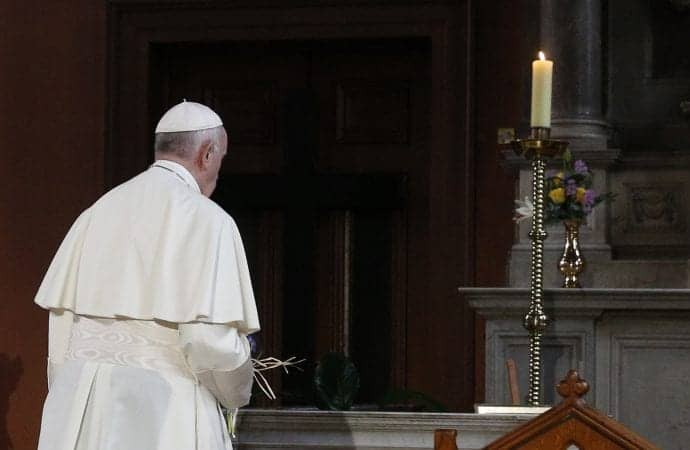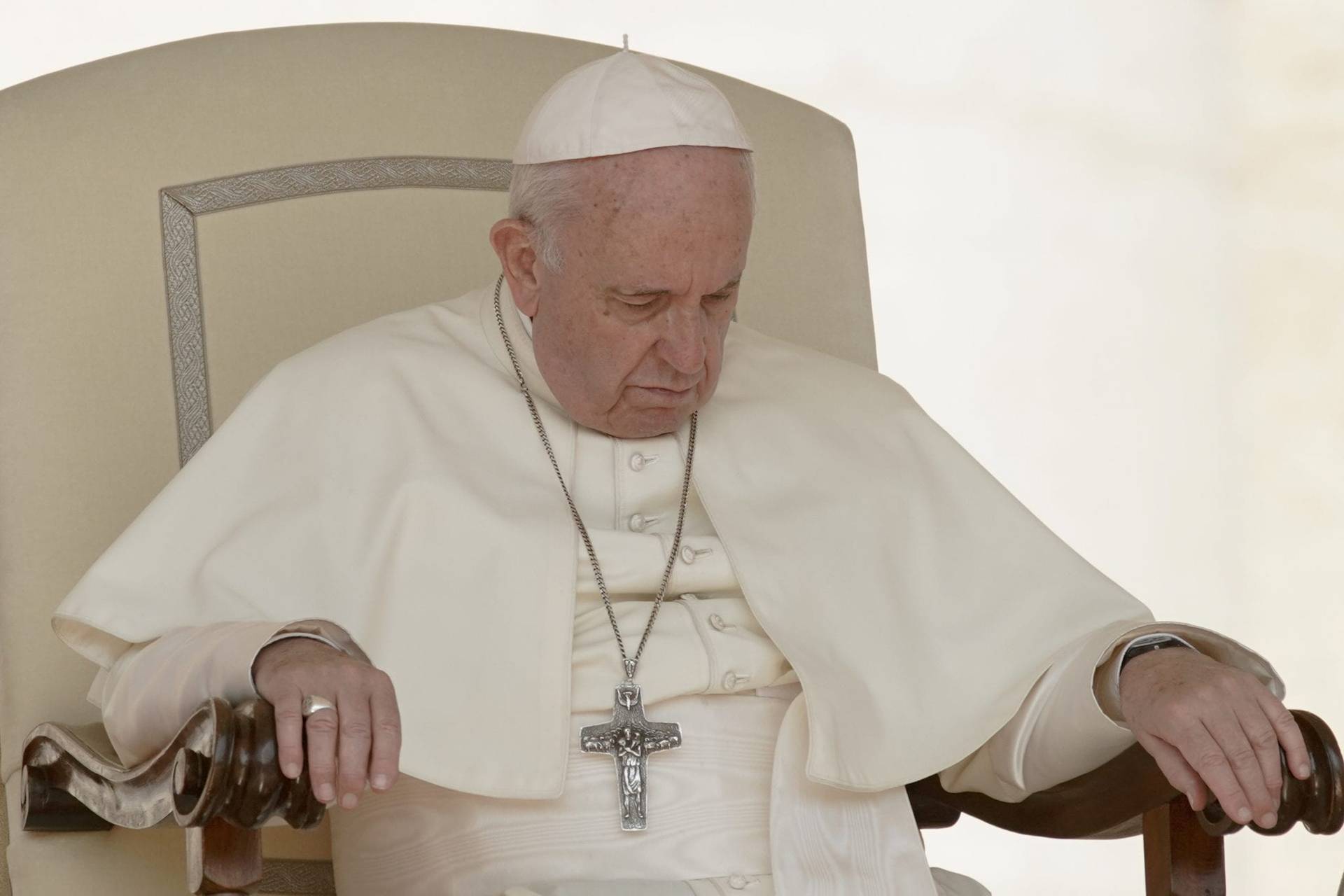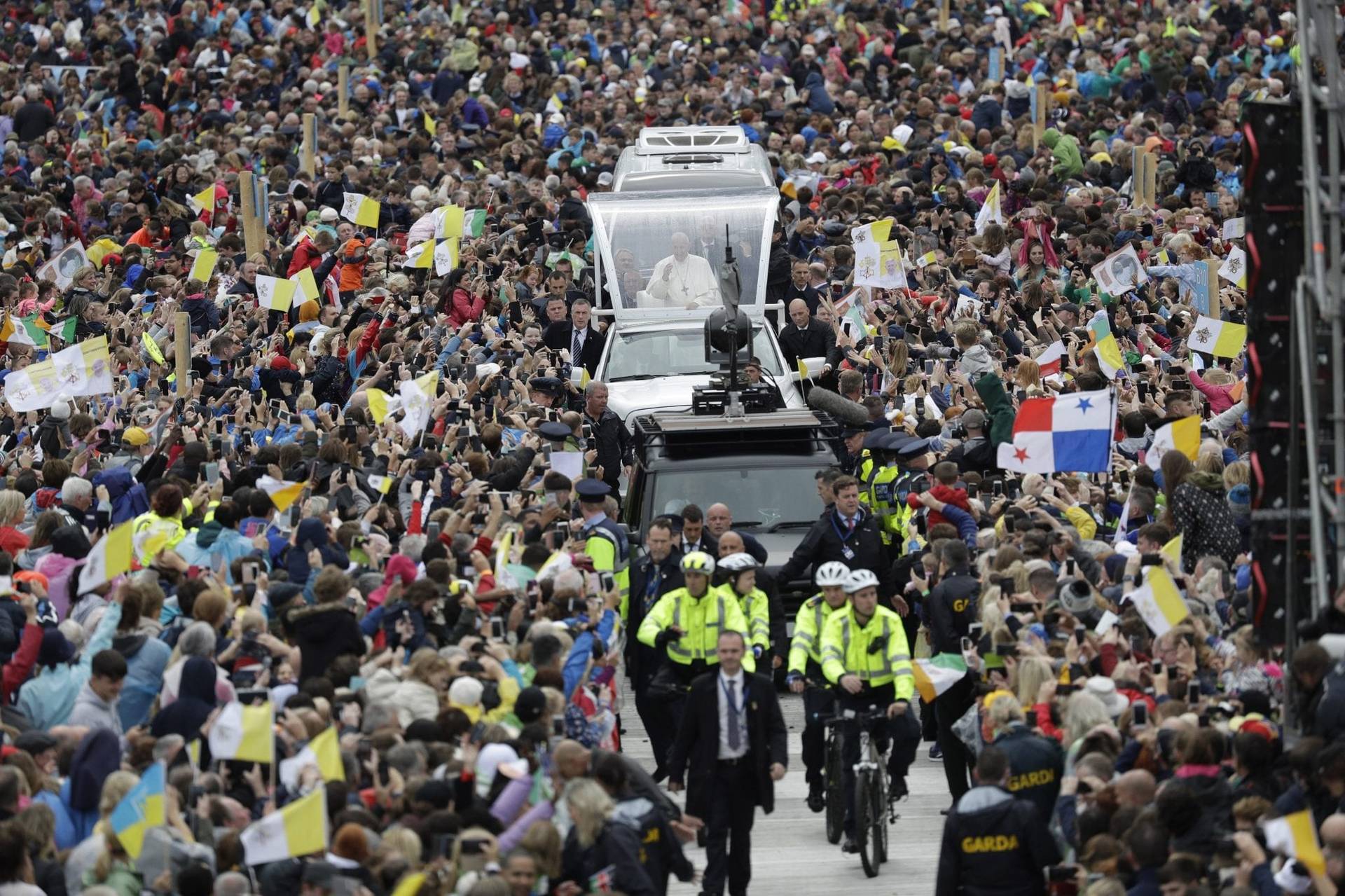DUBLIN – From the outside, it’s easy to conclude that the entire World Meeting of Families unfolding in Dublin this week is a sideshow, since the major question of the moment concerns what Pope Francis is going to say or do on the exploding clerical sexual abuse scandals in the Church.
The thing is, however, it’s not a sideshow for the real flesh-and-blood families who are here, and who need the support.
Here’s the reality over the past three days in Dublin: Whatever may be exploding in the media at the moment, Catholic families still have deeply personal challenges for which they look to the Church for help, whether it’s raising a special needs child or coping with the fallout of a divorce.
At that level, the conversations at the World Meeting correspond to some of the most deeply felt concerns of participants from all around the world. They’re not in denial about the tempests raging around the event, but their families still come first.
That was the spirit of a panel session Friday morning devoted to the impact of imprisonment on families, which may not have had much to say to the broader narrative right now, but which was of intense concern to those Catholics most directly caught up in the hardships of having a loved one behind bars.
Sister Breda Coman, who serves as a chaplain at Ireland’s Midlands Prison, surveyed the various ways families are affected when a loved one is incarcerated.
“The impact is different for every family,” she said. “Some live in dread and shock, for some it’s not a new experience, and for others it’s actually a welcome relief.”
For everyone, however, Coman said it takes a toll.
“Prison is tough on the relatives,” she said. “The loss of someone you love is always heartbreaking, but in this case there are no grieving rituals and the pain isn’t regarded as legitimate in the same way as other losses.”
Ruth Comerford, a chaplain at Ireland’s Mountjoy Prison, said often the initial challenges tend to be concrete.
“If it’s the first time a member of their family has been in, they don’t know where the first point of contact is. They don’t know how to book visits, they don’t know what prisoners are allowed to have, they don’t know how to go about handling property and money, so they’re dealing with very basic difficulties,” she told Crux.
“They’re unsure of how to transport themselves to the prison, or how to organize child care,” Comerford said, emphasizing these headaches are compounded by the fact that family members often feel they’re being penalized too even though they’ve done nothing wrong.
Coman said another thing that’s often tough for family members is that they don’t want their loved one to worry, or to carry more stress beyond that of being incarcerated, so they tend to shield them from what she called the “harsh realities of what it’s like on the outside.”
“There’s very little in social support,” Corman said, for families with members in the prison system.
“These families are often harassed by their neighbors, they get anonymous threatening phone calls, their doors and windows are broken, and they get ugly notes in their mailbox,” she said.
Sinead McNeela, a chaplain at the female prison in Ireland, said the emotional burden is also often steep for families.
“It’s the whole idea of shame … ‘Oh my God, my wife, daughter, husband, son, whatever, is in prison’,” she said in an interview with Crux. “People think the worst of inmates who are in custody, and the shame and embarrassment that brings on families is a massive issue.”
Comerford said that local parishes could play a hugely important role.
“Your local parishes and community centers could reach out to other people you may meet on the visit, or who you know may have been in prison themselves,” she said. “Slowly but surely we can build up a support network for these families, because they do suffer an awful lot of stigma and difficulties.”
She also said that Pope Francis’s example of outreach to people behind bars is a boon.
“Pope Francis is an inspiration,” Comerford said. “The fact that he makes a point of visiting prisons in the countries he visits is great, and his message of love and justice is one we should all listen to.”
McNeela agreed.
“I think it’s such a hopeful message. I mean, we’re all human beings, we’re all equal, Yes, people make mistakes, but we’re all equal,” she said.
The question and answer period confirmed that for some Catholics out there, these ideas aren’t abstractions but deeply rooted in their personal experience.
A man from Suffolk in England, for instance, described how his grandson is in jail and three of his four children have abandoned his mother, whom they see as indulging the grandson despite his “bad behavior.” The mom (and his daughter), the man said, suffers from mental illness, and he wanted to know how he’s supposed to cope with a situation like that.
Another woman said she’s a foster care provider and one of her kids has a parent in prison. The child wants to go see that parent, she said, and she’s asked for advice about how to prepare the child for the experience.
McNeela fielded the question, saying the key is to “talk through what’s going to happen” with the child.
“When kids know what to expect, they’re okay,” she said.
And so it went, as people with a wide variety of connections to the prison system in various countries aired their concerns and drew sympathetic responses. For them, it was the most important conversation in the world going on that day, regardless of whatever other storms might have been breaking around the Royal Dublin Society complex where the World Meeting has been taking place.
Auxiliary Bishop Eamonn Walsh of Dublin, who was a prison chaplain himself for 13 years, added a final thought in an interview with Crux – that inmates don’t just need to learn, but they also have much to teach.
“The biggest thing I learned is, I met people who told it as it was,” he said. “One woman told me, I’ll tell you what a real friend is … it’s someone who’ll split their last cigarette with you. They’ll give and share when they can’t afford it. That’s the gift, that’s the test of friendship, and if I learned nothing else, I learned that.”
Moreover, Walsh said, he also learned how to walk with people rather than judging them.
“If we stop walking with one another, then we become a judgmental society. We become a society that’s only interested in seeing heads roll, and we never stand in the shoes of the other person,” he said.
In remarks to the audience earlier, Walsh put the same point in terms of a provocative question he invited people to pose to themselves about inmates and their families.
“How can I extend a helping hand,” he said, “rather than a scorning finger?”














